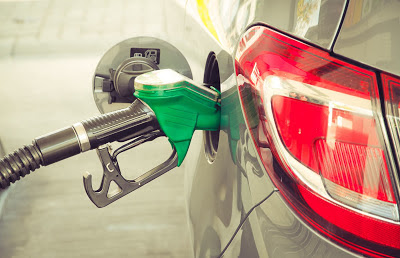Vehicle fueling and the different ways we can power our machines has become quite the hot topic today in the automotive industry. Will we be moving to electric power? Hydrogen fuel cells? Hybrids? Or something else? While the world certainly has its hands full with fueling logistics, this isn't the only time in history we've openly debated and adjusted our fueling structure for machines.
Without reaching too far back into the troves of history, it wasn't too long ago that gasoline was a pretty hotly contested debate, and not because of its environmental impact. Not directly, anyway. We're talking about the onset and use of ethanol gasoline for mainstream fueling. This made huge waves in the automotive world, but you probably wouldn't figure that when pulling up to a pump. Toyota of Orlando is here with a little guide on what this fuel does, means, and how it affects your ride.
The Ins and Outs of Ethanol Gasoline
- Ethanol (apart from being a gasoline additive) is a naturally occuring substance and it's organic. It's actually the same substance you consume if you drink alcoholic beverages.
- It's also used in the medical field as a common variety of disinfectant.
- Ethanol is made by fermenting sugars with yeast and has been used in a recreational sense since ancient times. Many countries and societies distill it for a variety of reasons.
- One could make ethanol from just about any form of crop. In North America its distilled commonly from corn and in Brazil from sugar cane.
- As a seguey, ethanol gasoline is fuel mixed with a certain percentage of ethanol as an additive.
What Ethanol Does for and to Your Car
It's an undeniable fact that burning fossil fuels (like gasoline) creates harmful emissions and air pollution. To aid in the reduction of emissions, engine designs have been tweaked over the years, fuel efficiency has taken a front seat in vehicle design, and ethanol was added to gasoline. But, this comes with some caveats. Burning higher grades of ethanol gasoline or pure ethanol can actually create higher levels of smog in an area. In North America we typically use a 10% ethanol gasoline mix which helps to reduce emissions.
When ethanol was first introduced as a mainstream fuel additive it faced some hesitancy and criticism from drivers. Older Orlando Toyota engines weren't designed to handle the ignition and gradual decay of alcohol and ethanol proved to be an issue. In fact, for a lot of classic car collectors it continues to be an issue. Ethanol is naturally hygroscopic, meaning it absorbs moisture from the surrounding air. Simpler and older engines aren't designed to handle the excess moisture in the fuel compartment and rust can more easily form. Some drivers also report an average 2 - 3 mile loss in fuel economy overall because of the combustion process of alcohol.
Still have questions? Our auto service techs at Toyota of Orlando have answers! Visit the dealership at 3575 Vineland Road or chat with us online today.



No comments:
Post a Comment
Note: Only a member of this blog may post a comment.